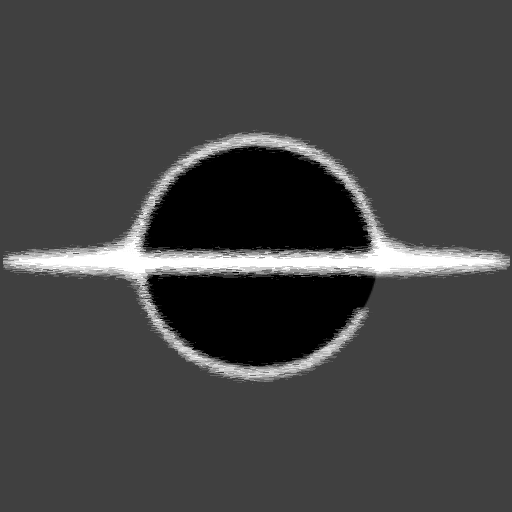Blazor - State Management - Shared Inject
In this article I will be going over State Management using an Inject Attribute in Blazor. I use this in my Blazor applications when I only want to access some sort of state from anywhere not in the context of a CascadingParameter. This is usually for components or code that is triggered by observers and could only be triggered in the context of a valid Zone.
Usage
For more details about the Cascading Provider and more details about the ZoneStateProvider checkout the prior article about Cascading Parameters. This article focuses on the SelectedEntityActions Component, this component is not in the context of a Cascading Provider, so it needs to use an Injection of the ZoneState. It then uses the ZoneState to create requests for updates of a Select ClientEntity for a specific Zone, using the ServerAddress in the request.
Example
Here are some code examples of how this works using an example I currently use in my Game Editor application.
SelectedEntityActions.razor
@inherits SelectedEntityActionsModel
@if (IsClientEntitySelected)
{
<button class="c-button"
@onclick="HandleCloneClientEntity">
@Localizer["Clone"]
</button>
<button class="c-button"
@onclick="HandleDeleteClientEntity">
@Localizer["Delete"]
</button>
<button class="c-button"
@onclick="HandleClearClientEntity">
@Localizer["Clear"]
</button>
}
SelectedEntityActions.razor.cs
// This component is used to trigger ClientEntity State changes.
// The ClientEntity is a static object in the Game world.
// The editor can edit them and this class will trigger updates to
// the Game server to persist those changes.
public class SelectedEntityActionsModel : EditorComponentBase,
IDisposable,
ZoneStateChangedObserver,
ClientEntitySelectedObserver,
ClientEntityUnselectedObserver,
ClientEntityChangedEventObserver
{
private ClientEntityDetails _clientEntity = default;
// Here we don't expect the Parameter to be cascaded down,
// so we Inject the ZoneState in from the Current Scope.
[Inject]
public ZoneState State { get; set; }
public bool IsClientEntitySelected => _clientEntity.IsValid();
protected override async Task OnInitializedAsync()
{
await base.OnInitializedAsync();
await Mediator.Send(
new RegisterObserverCommand(
this
)
);
}
protected async Task HandleCloneClientEntity()
{
if (!_clientEntity.IsValid())
{
return;
}
await Mediator.Send(
new CloneClientEntityToZoneServerAddress(
State.Zone.ServerAddress,
_clientEntity
)
);
}
protected async Task HandleDeleteClientEntity()
{
if (!_clientEntity.IsValid())
{
return;
}
await Mediator.Send(
new DeleteClientEntityFromZoneServerAddress(
State.Zone.ServerAddress,
_clientEntity
)
);
}
protected async Task HandleClearClientEntity()
{
await Mediator.Send(
new GameClientUnselectEntity(
_clientEntity.GlobalId
)
);
}
public void Dispose()
{
Mediator.Send(
new UnregisterObserverCommand(
this
)
).GetAwaiter().GetResult();
}
public async Task Handle(
ZoneStateChangedObserverArgs _
)
{
if (_clientEntity.IsValid())
{
_clientEntity = this.State.ZoneInfo.ClientEntityList.FirstOrDefault(
entity => entity.GlobalId == _clientEntity.GlobalId
);
await InvokeAsync(StateHasChanged);
}
}
public async Task Handle(
ClientEntitySelectedObserverArgs args
)
{
args.NullCheck();
_clientEntity = State.ZoneInfo.ClientEntityList.FirstOrDefault(
a => a.GlobalId == args.GlobalId
);
await InvokeAsync(StateHasChanged);
}
public async Task Handle(
ClientEntityUnselectedObserverArgs args
)
{
args.NullCheck();
if (args.GlobalId == _clientEntity.GlobalId)
{
_clientEntity = default;
await InvokeAsync(StateHasChanged);
}
}
public async Task Handle(
ClientEntityChangedEventObserverArgs args
)
{
args.NullCheck();
if (_clientEntity.ClientEntityId == args.Data.NewEntity.ClientEntityId)
{
_clientEntity = args.Data.NewEntity;
}
else
{
_clientEntity = default;
}
await InvokeAsync(StateHasChanged);
}
}
ZoneStateProvider.razor
@inherits ZoneStateProviderModel
@if (State.IsLoading)
{
<div>@Localizer["Loading..."]</div>
}
else if (!State.Zone.IsValid() || State.ZoneInfo == null)
{
<div>@Localizer["Zone Invalid."]</div>
<NavLink href="/zone-admin">@Localizer["Back to Zone Admin"]</NavLink>
}
else
{
<!-- If the State is not Loading and Is Valid we create a CascadingValue with our State -->
<CascadingValue Name="ZoneState" Value="@this.State">
@ChildContent
</CascadingValue>
}
ZoneStateProvider.razor.cs
[Authorize]
public class ZoneStateProviderModel : ComponentBase,
IDisposable,
// This observer that helps to trigger state changes outside of the Blazor lifecycle
ZoneStateChangedObserver
{
[Inject]
public ZoneStateUpdater StateUpdater { get; set; }
[Inject]
public ZoneState State { get; set; }
[Inject]
public IStringLocalizer<SharedResource> Localizer { get; set; }
[Inject]
public IMediator Mediator { get; set; }
[Parameter]
public string ZoneId { get; set; }
[Parameter]
public RenderFragment ChildContent { get; set; }
public void Dispose()
{
// Observer Un-Registration
Mediator.Send(
new UnregisterObserverCommand(this)
).GetAwaiter().GetResult();
}
public Task Handle(
ZoneStateChangedObserverArgs args
)
{
// We handle the State Change observer event by telling Blazor it had a State Change Event.
return InvokeAsync(StateHasChanged);
}
protected override async Task OnInitializedAsync()
{
// When this components is initialized we updated the State to this ZoneId.
await StateUpdater.SwitchZone(ZoneId);
// Observer Registration
await Mediator.Send(
new RegisterObserverCommand(
this
)
);
}
}

